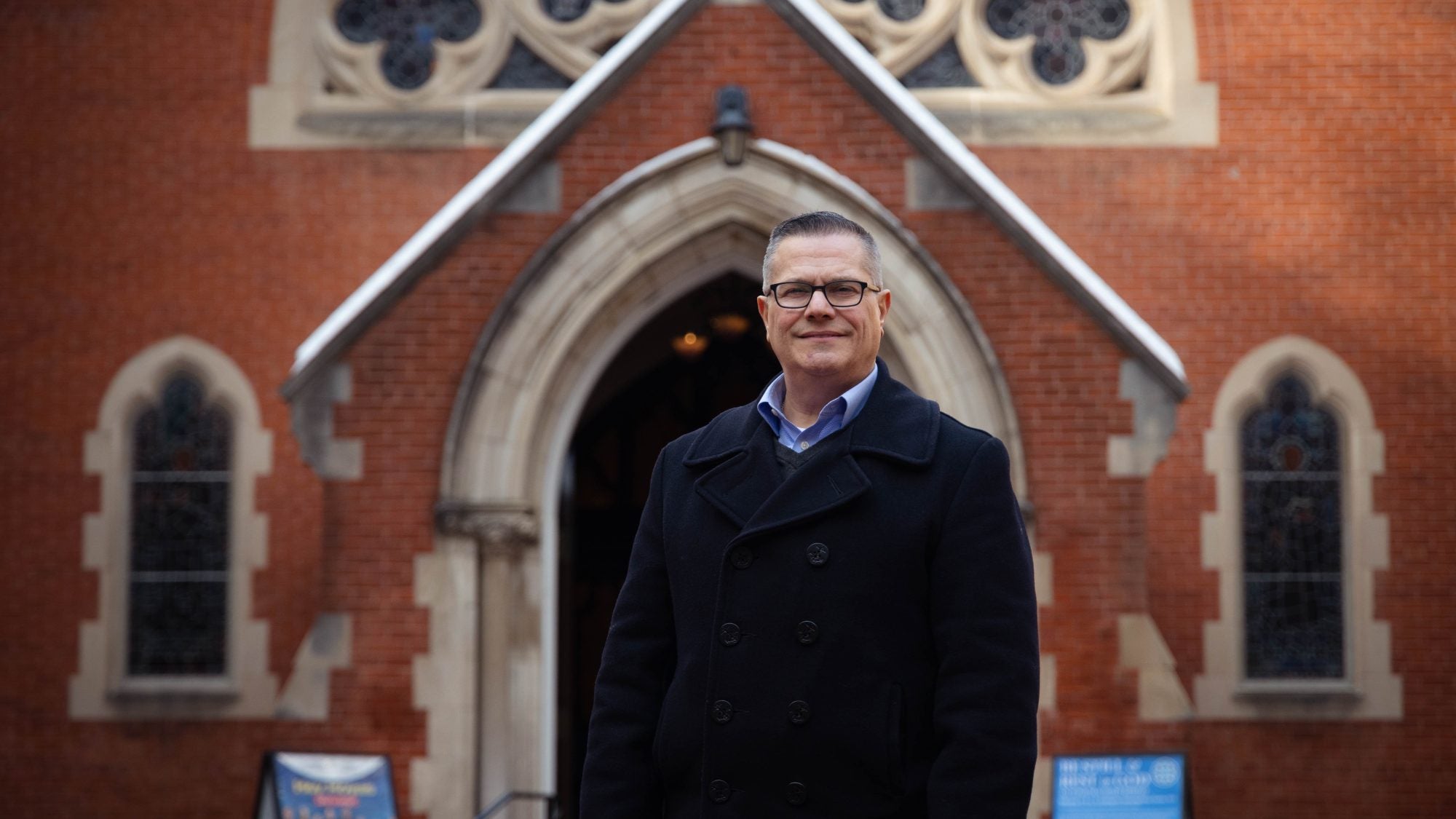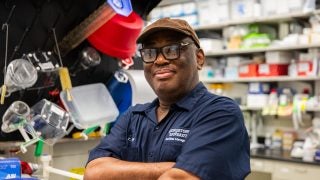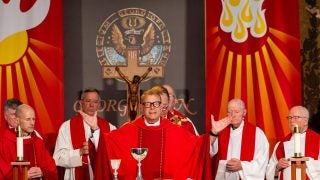Editor’s Note: Marc Barbiere is the former director of the Office of Emergency Management.
Marc Barbiere thrives in times of crisis. It’s why he’s the perfect fit as Georgetown’s director of the Office of Emergency Management.
When Barbiere first arrived on the Hilltop in late 2019, he was told he’d have plenty of time to develop his team and enhance the university’s plans for responding to emergencies. As it turned out, Barbiere would be one of the first people charging toward the metaphorical fire as the tip of the spear orchestrating Georgetown’s response to the COVID-19 pandemic just months later.

Barbiere, a veteran of the New York City Fire Department, was unfazed. He leveraged his three decades of experience in emergency response and management — from the Sept. 11 attacks to the swine flu pandemic and Hurricane Harvey — to coordinate the university’s response.
When Barbiere first applied for the role at Georgetown, he wondered whether he would fit into the community and culture on the Hilltop. That doubt didn’t last long.
“Everybody has that moment where they walk through the gates on 37th and O Street, and the magnitude of this place is before you,” he said.
Since crossing those gates, Barbiere hasn’t looked back. He’s right where he wants to be.
In his role, Barbiere develops emergency response plans for a multitude of scenarios, from natural disasters to acts of terrorism, and serves as a coordinator in the event of an emergency on campus. The Office of Emergency Management also provides education and outreach for the Georgetown community to prepare people to respond to emergencies.
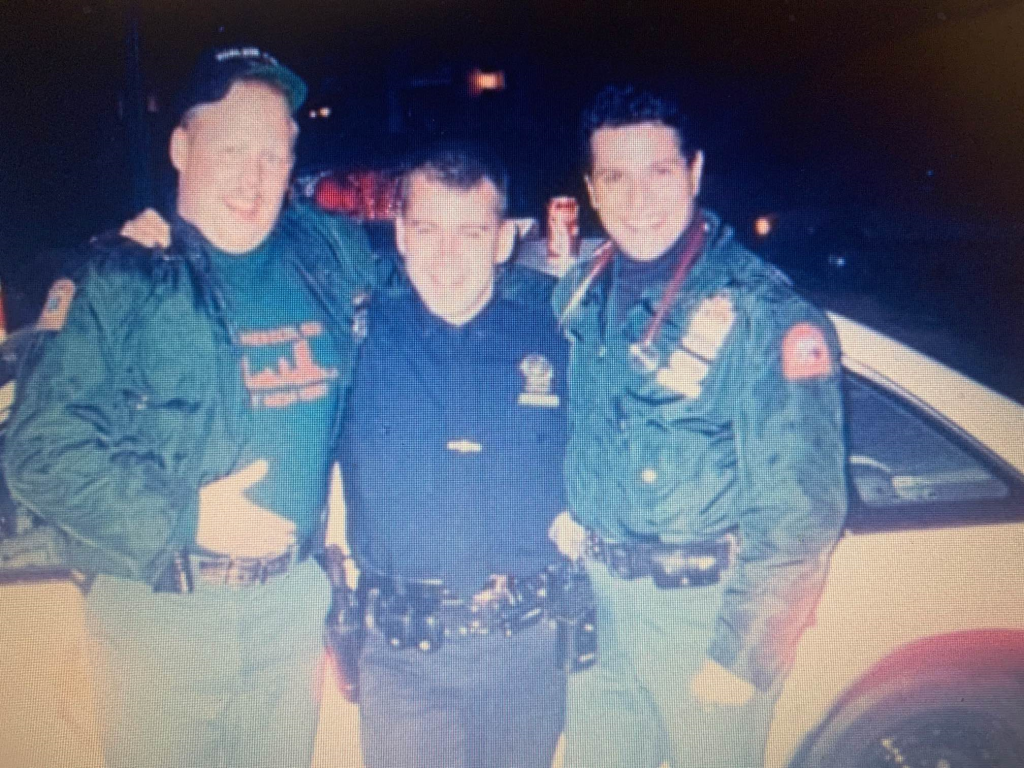
“We are responsible for ensuring that our university is prepared for and resilient from a host of threats and hazards,” Barbiere said. “Our job is really to make sure we are as prepared as an organization to respond to and recover from whatever those threats might be.”
Get to know Barbiere and how he got into emergency response management, his love for weather phenomena and the baseball team he’s rooted for his whole life.
I decided to come to Georgetown: [When I came back] for a second interview, I spent a whole day here meeting with different leaders, and it felt like this was a place where I could belong. This was the place I needed to be. Something about the organization, the people, the way that the values and how those are a big part of what we do and how we try to make them a big part of our students’ lives every day just felt like the right place to be.
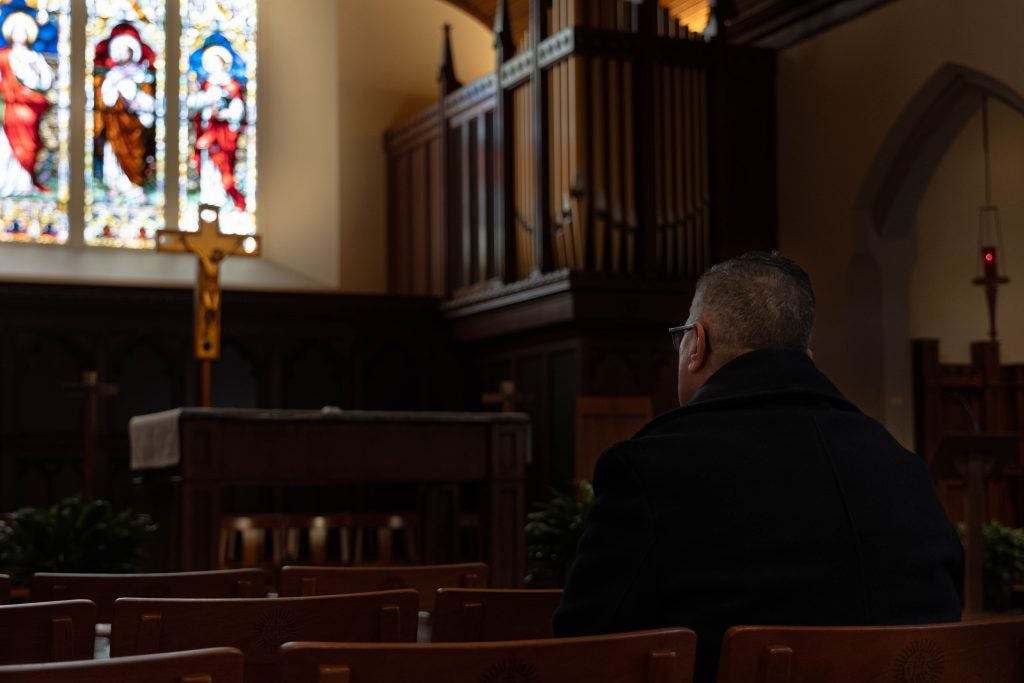
What I did when COVID-19 hit: Coming out of that world [as the division chief at the DC Department of Health] that deals with this all the time, I was like, Okay, here’s what we need to do. We just ramped up. In my world, when you see that coming over the horizon, you just go. Your job is to anticipate the threat, get as much information as you can and start making things happen. We met literally every morning at 8 a.m. in the Hall of Cardinals with various people at the university and started gaming out all of this. What’s going to happen? How bad could it be? And all of this took place until March 13, 2020, when we shut down.
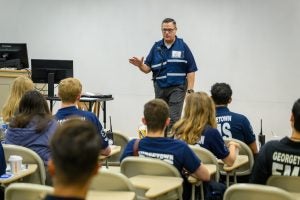
I love emergency response and management because: It might be a genetic trait or some kind of genetic imbalance. My dad was a New York City cop, and my mom was a nurse. If you combine a cop and nurse, you get an emergency manager. If you put a complex problem before most emergency managers, we’re going to try to figure it out like a Rubik’s Cube. We want to try to put the puzzle together. So that’s what we like to do. And I love working with people, and most of what we do is collaboration with people. It’s getting to know people and building relationships with partners and stakeholders and educating and providing information to community members.
Being an emergency manager in DC: We deal with stuff here that most folks don’t ever imagine dealing with because we’re in the nation’s capital, the seat of power for the government and home to some of the most powerful people in the world. If you can do it in DC, you can do it anywhere because this is a very, very complex operating environment.
Why I love studying the weather: How weather impacts our community fascinates me. I am an amateur wannabe meteorologist at best. I’ve taken a lot of courses about weather. I’ve visited with and learned from the National Weather Service when I worked in New York, DC and Texas. I’ve taken a host of trainings about how to spot weather and how to document severe weather. I just get very geeked out by it.
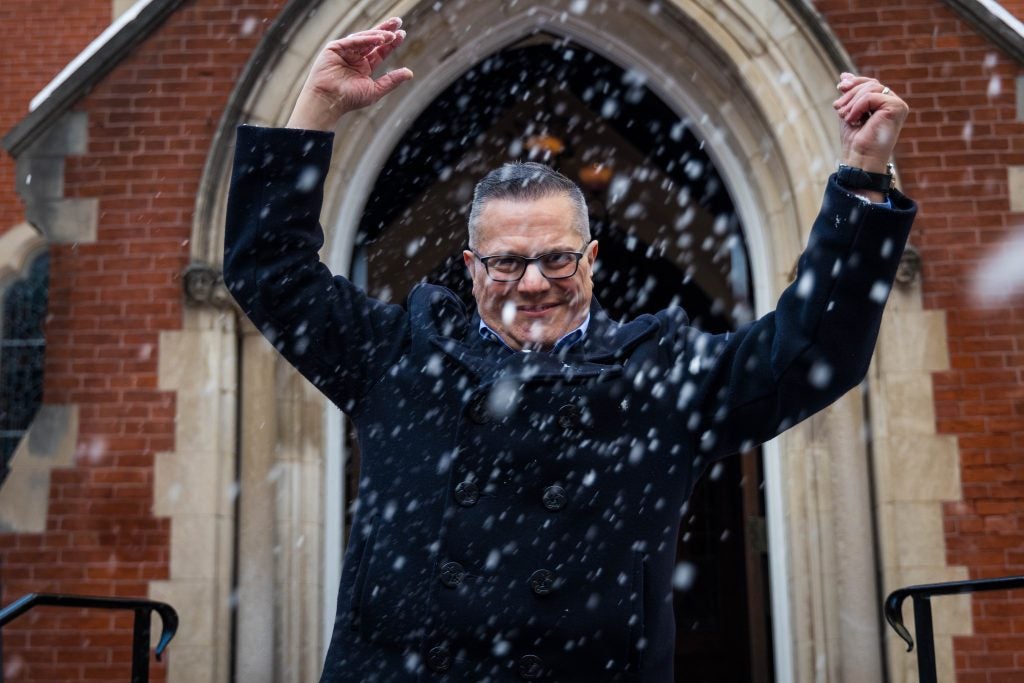
My favorite weather phenomenon: Tornadoes. No doubt. They are a fascinating phenomenon from the physics and the way the wind and atmosphere interact to create the damage they do.
Scratching my storm chasing itch: I have a lot of friends who do storm chasing, and they’re very skilled and know how to do it safely. I probably would not do it unless I was with someone who could do it and show me the best way to do it safely. But I would love to do it.
The team I root for: The New York Yankees. My dad was a big baseball fan and a really good player. He played shortstop in the minor leagues for the New York Yankees. Even though I grew up in Queens, New York, just five minutes from where the New York Mets play, God forbid you were a Mets fan in our house.
What keeps me coming back to Georgetown: Every day I get to come to work and work with really smart and dedicated people to figure out how we can do our best to serve the community. How can we come together in creative ways to bring that value of cura personalis into the work that we do? Our job is to help care for and prepare our students, faculty and staff for what might be the worst day of their lives if something bad happens, and we take that very seriously.
